Bucket truck overturns on Thruway
A bucket truck has reportedly flipped over on the Thruway in the area of mile marker 390.4 in the westbound lane.
Unknown injuries.
East Pembroke Fire dispatched.
UPDATE 3:33 p.m.: The truck is leaking fluids.
A bucket truck has reportedly flipped over on the Thruway in the area of mile marker 390.4 in the westbound lane.
Unknown injuries.
East Pembroke Fire dispatched.
UPDATE 3:33 p.m.: The truck is leaking fluids.

View our specials on Facebook
A fire is reported in a garage attached to a house at 5968 Bartoff Road, Stafford.
There are propane tanks nearby.
All occupants out of the structure except for animals.
Stafford Fire along with South Byron, Byron, Bergen, City of Batavia, Le Roy, and Town of Batavia dispatched. Mercy EMS also dispatched.
UPDATE 3:22 p.m.: City Fire and South Byron are back in service.
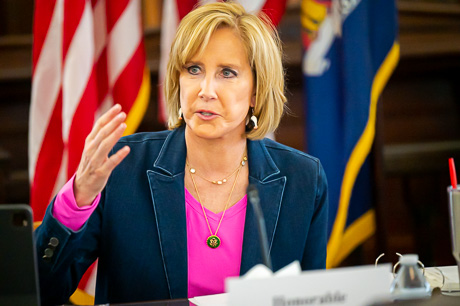
Dairy prices and substitute labeling, crop insurance, support for specialty crops, soil health, nutrition programs, agricultural research, inflation, and invasive species were all topics that farmers in the region brought to Congresswoman Claudia Tenney Tuesday at the Old Courthouse in Batavia,
Tenney, who has been representing Genesee County as part of the redrawn NY-24 since January, made Batavia the first stop on a tour of the district to discuss potential provisions in the 2023 Farm Bill.
Congress passes a new Farm Bill every five years. The Farm Bill is most notably known for providing crop insurance and other assistance to farmers to deal with the nature-driven inherent risks of agriculture and the trade barriers that often make selling their commodities more difficult. But it also deals with a host of other issues related to farming.
While all of those topics were discussed, the topic most often broached by speakers on Tuesday was immigration. Farmers are tired of seeing their workers fear deportation, and they want to increase the labor supply to help them remain productive.
"I've been involved with immigration and immigration issues since the Reagan administration," said Kim Zuber, owner of Zuber Farms in Byron. "Our first Hispanic employee, back in 1980, the first kid we got was 21. He had a green card, and he became a citizen through the Reagan administration. I've been in Washington many, many times, and this is a political football by the left and right, and we pay the price. They practically make criminals of us on the question of papers. We are sick of being in the middle of this political football. We really would appreciate it if somebody would stand up and say, 'Enough.' These people are our fellow human beings. Sure, surely, bad people come across the border, but the people who work on these farms are supporting themselves and their families. They're good people. They got families and kids just like us. It's just sad. We are sick of being the football between the left and the right."
Natasha Sutherland, from Stein Farms in Le Roy, was the first speaker of the day and, after talking at length about dairy prices and the regulations that control them, opened the immigration discussion by noting that there are people entering the country on a daily basis, risking their lives, to provide for their families. Often these farmworkers are supporting families they left behind.
"These people deserve to live and work without fear of deportation," Sutherland said.
The next speaker, Pat McCormick, reiterated some of Sutherland's points.
"We need to improve," he said. "We need to be able to get the farmworkers that we need here and have the paperwork they need so that they're not afraid to go to the hospital and not afraid to go to the grocery store."
He added, "They are a vital part of our community and are a vital support to their people back home, so we need to fix that problem."
Another farmer spoke about one of his workers who witnessed a murder and was initially afraid to speak to authorities for fear of deportation. Eventually, he did provide evidence that helped get the killer convicted, but the farmer said farmworkers shouldn't have to face that kind of fear.
"It brings people to tears," he said. "These guys and girls are people. They're one of us. They deserve more respect than we give them."
Tenney Supports Immigration Reform
In her closing remarks, Tenney told the farmers she heard their concerns about immigration and is seeking to address it. In an interview with The Batavian after the meeting, Tenney said she supports providing a pathway for undocumented farmworkers to stay in the country without fear and that she would particularly like to help dairy farmers help their workers here on H2A visas stay in the country all year long. She also supports an increase in immigration from Mexico and South America so long as it's legal, protects the safety of Americans, and ensures farmers are getting workers who work hard and obey the laws of the country.
She acknowledged the need for more workers but said it's also essential -- especially in New York where farmers are facing increased costs because of new overtime rules and the threat of unionization -- to lower the costs for farmers to retain the workers they have.
"These visa programs are really just a bureaucratic disaster right now for them," Tenney said.
She explained, "What we're trying to do in the Farmworker Modernization Act is come up with a way to make (the H2A visa program) a year-round program, to make the touchback point, the consulate of (their home) country, which would be in New York State. That touchback would be to go and renew the visas and make it a more streamlined process. We would still go through all the criminal records. The farmers would be given some security as to the types of people that are coming to work in their operations. And it would provide us with some oversight as opposed to now, where we sort of have people in the shadows. We want to make sure good, hardworking people who are willing to come here, do the hard work, and that we can actually do it in a more streamlined fashion that is less cost costly to the farmers."
Asked about the fact that oftentimes Republican politicians oppose providing a pathway for undocumented workers to remain in the country, who are the kind of experienced workers farmers want to keep. Tenney said she is sympathetic to the frustration expressed by those views because she personally knows people who have waited 20 years to come into the country and become citizens through a documented, legal process.
But she also understands that people who came here to work and are working, are the kind of people we should want in the country.
"They're not coming here across the border to human traffic, to traffic drugs, to engage in surveillance," Tenney said. After accusing the Chinese of sending people to the U.S. to engage in surveillance, she continued, "We want to make sure that we provide a legal path so that the farmers are protected, the farmworkers are protected, and we know that the people who are working on these farms are productive and are no threat to American citizens in any way. They will ultimately at least have a path to legalization if they're not already legal."
Tenney is aware of the shortage of workers in the U.S. economy and understands the complexity around the issue of a large number of prime-working-age men not joining the labor force and said, yes, immigrants can help bridge that gap.
"We are seeing a great need, not just in farming, but across every sector," Tenney said. "We need people to come and work and create growth in our economy. Without growth, we're not going to deal with our deficits, we're not going to deal with the needs that we have."
While she supported the Farmworker Modernization Act, she thinks Republicans can and will come up with a better reform bill.
"Republicans are for allowing legal immigration," Tenney said. "We want the rule of law to be respected, and I think a lot of illegal immigrants don't know any better, to be honest with you, because they're being trafficked."
She blamed cartels for pushing illegal immigrants, including children, into the country in order to disrupt border security, even on the northern border.
"Nothing is more disheartening than my visit to the border and seeing just how much control the cartels have," Tenney said. "The confusion, the chaos, the large numbers coming across, the lack of ability for the Customs and Border Patrol to really handle this (is disheartening)."
There is a middle ground on immigration reform, she said, that doesn't involve lawlessness. There can be a sensible plan that respects the rule of law, and she believes that is what farmers are looking for.
Some economists project the U.S. is short about one million workers. Tenney said she isn't opposed to a million immigrants entering the company to fill jobs so long as it is legal.
"That's something that we have to negotiate, but I think there is a very few numbers of people who are against having more people come into the country legally," Tenney said. "There's a very small number that may think this is a burden on taxpayers. I look at (immigrants) as people who are going to produce growth, and if we're producing growth, and we have a larger output and more labor, you're going to see us prosper. We're going to be able to cut down our deficit and actually bring more prosperity. I see growth as the answer."
Photos by Howard Owens. Top photo: Rep. Claudia Tenney speaking during opening remarks.
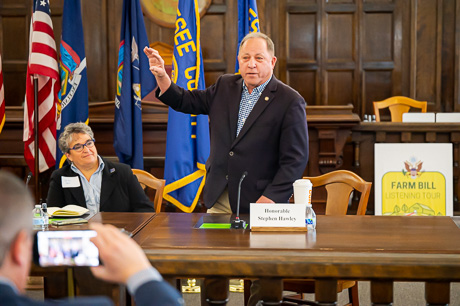
Assemblyman Steve Hawley spoke briefly about the budget deadlock in Albany and how the deadlock is costing taxpayers money.
"They are intransigent," Hawley said. "They are refusing to do anything about bail reform or spending $240 billion a year of our taxpayer money. Every day that we were in Albany, 213 senators and assembly members cost you and me $40,000 a day. We've been there six days looking at not one budget bill, that's a quarter of a million dollars. Now, that pales in comparison to $240 billion, but a penny is a penny, and a dollar is a dollar, and there is a quarter of a million dollars being paid to individuals getting nothing done. It is tragic."
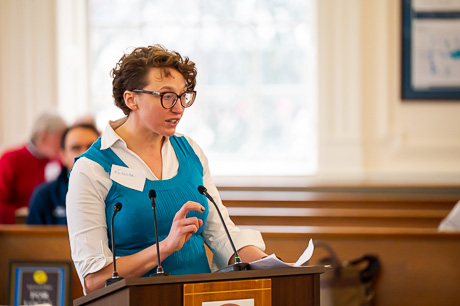
Natasha Sutherland, Stein Farms.
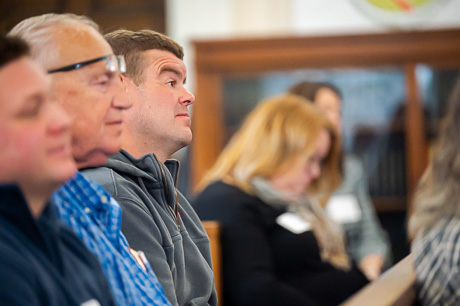
Seating in the Old Courthouse was nearly filled with farmers from throughout the region, most of whom did not speak during the meeting. Among those in attendance was Daniel Swyers, a dairy farmer from Perry.
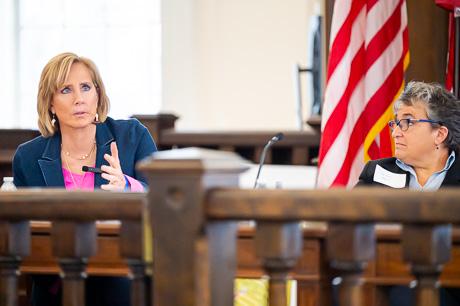
While Tenney asks a farmer a follow-up question, County Legislative Chair Shelley Stein listens.

This past year has been a year of firsts for Genesee-Orleans Regional Art Council.
The nonprofit gave out $147,000 through its regrant program and $210,000 through COVID relief funding, both more than what’s been doled out in the past, Executive Director Gregory Hallock says.
Better known as GO ART!, it has grown exponentially with the number and variety of programs offered for children and adults, developed a budget of $100,000 from when Hallock was hired seven years ago to $600,000 now, and was the recipient of the Chamber of Commerce Special Service Recognition Award.
The facility at the corner of East Main and Bank streets in Batavia, with a site also in Orleans County, is figuratively busting at the seams to the point where staff is planning to expand in both counties. All this is to say, Hallock was plenty armed with positive data for his annual report to Genesee County legislators Monday.
“Everything we do is dramatically stepped up in numbers,” he said. “We’re no more the best-kept secret.”
Although having only 12 percent of its revenues coming from programs and fundraising seems like a good thing, it concerns Hallock, he said. That leaves GO ART! dependent on the majority of its funding from outside sources that could revise their contributions at some point.
Genesee County’s funding has been fairly steady, recorded in 1993 with a $2,500 contribution, and jumping to $6,000 in 2004, with $4,000 in state grant funds, and declining in 2010, ranging from 5 percent to 15 percent reductions. Numbers hit a low of $6,300 in 2017, and then inched up to $6,500 and again, for the last two years, where it has remained at $7,500.
According to the report, 50.6 percent of its budget goes to administrative costs of $208,395, 35.8 percent for grants ($147,465) awarded to community artists, 2.4 percent for fundraising costs of $10,138, and 11.2 percent for programs and events ($46,167).
Grants go to musical groups such as Batavia Concert Band, Genesee Chorale, The Old Hippies, and Genesee Symphony Orchestra; and to community entertainment and initiatives, including Batavia Players, Elba and Oakfield Betterment Committees, GLOW OUT!, St. Mark’s Episcopal Church, Gillam Grant Community Center, Holland Purchase Historical Society, and Bart Dentino.
Staff is pursuing additional artists, such as Rochester City Ballet for a performance of the “Nutcracker” and Nickel City Ballet, hoping to showcase those groups for less than people would have to pay to see them in bigger cities and venues, Hallock said.
“It’s more to sustain programming than to sustain us,” he said.
GO ART! has also more recently printed a flyer that will be sent out periodically to keep members updated on programs and offerings, which include podcasts, dance, music, art, culinary arts, and culturally- and diversity-focused events.
“As an organization, we’re proud to have a building that allows us to be versatile in the programming we are able to offer the greater community,” Hallock said as part of the report.
2023 File Photo of Gregory Hallock by Howard Owens.

There’s a joke between Rob Credi and his wife Karie about a nickname they’ve dubbed a part of their home. Rob periodically makes dinner, and sometimes it comes out really good, and other times, not so much. So they call the culinary space Crapshoot Kitchen.
It’s a name that stuck for his latest business venture that will rent opportunities for starter businesses and organizations to get going in the culinary field for take-out meals and food items. The Crapshoot Kitchen & Commissary is located at 56 Harvester Ave., in The Harvester Center, on the east side of Batavia.
“You’re standing in the vestibule now,” Credi said during a walk-through of the street-level site Tuesday afternoon. “So when you walk in this way, this is my space. And this is all a commercial commissary kitchen, meaning that I’m building the entire kitchen, putting in the hood and all the equipment, and all that for someone who wants to come in and use it to prepare food in a certified kitchen, for sale to public consumption.”
He plans to rent it out to three or four operators, ideally food businesses that would be using the space on a regular basis. He already has one committed vendor who makes Puerto Rican cuisine, and potentially a baker. Both vendors were referred by Batavia Development Corporation, he said.
The space can be rented by the hour or the month, for organizations wanting to make, say, cookies for a fundraiser, or take-out restaurateurs wanting to establish themselves.
Credi’s space is 1,400 square feet and will include a long counter, kitchen area, 13-foot hood, baking equipment, coolers, storage lockers, prep stations, tables, and a few chairs for patrons waiting for a food pick-up.
Large solid pillars form a visual wall that begins the separation between Credi’s place and what will be Windy Brew, a pub and tasting room owned by Bill and Michelle Snyder. They wanted to wait until their permits were received before talking details about their place, but prior planning board meetings have teased that the place will feature pretzels and pizza, craft brews from the site’s brewery in Strykersville and elsewhere, and music.
Property Manager Jarrod Clark, who is an officer of Harvester Center LLC, will be taking care of the front and back spaces with steel framing and all-glass vestibules, for two entry/exit ways. There has also been talk about converting part of the rear exterior into a beer garden green space and additional parking, Credi said. He hopes to have the site up and running by June. He estimated that combined, the space is about 3,500 square feet.
His commissary venture was largely based on the idea of food truck owners needing a kitchen to prepare, pack and work out of for their mobile businesses, he said. There is a large garage door at the back that trucks can back right up to load and unload equipment and supplies, he said. In addition to the shared space, renters would have access to dry and cold storage, equipment, and educational resources.
“While the primary purpose of the kitchen is to serve as a prep kitchen for most members, there are also very limited spots available for those looking to conduct a more retail-oriented and customer-facing business operation through the use of its streetside retail counter,” Credi said.
No newcomer to the business world, Credi owns Coffee Pub Hub just down the street, to the right of the Crapshoot. Although he has at times complained about issues of city protocol, lack of communication and tight parking, Credi has been amazed and thankful that recent road construction didn’t dampen customer enthusiasm to keep coming back for his specialty coffee drinks, breakfast sandwiches, and new bubble teas.
“The coffee shop is doing fantastic,” he said. “We had one of the best weekends we’ve ever had. It’s building of the brand.”
So perhaps that answers why he is investing in another site on the same street, but The Batavian asked anyway: why, after your previous complaints?
“That is a question that I asked myself many times a day. Honestly, I like this project, I don't want to say it's not for me, because, obviously, you know, I'm behind it, and I am gaining from it, but it's like a community focus thing. Like, it's more for other people than it is for me. I've done the coffee shop so far, which, this is my business, and I'm trying to make money and provide a service to the city,” Credi said. “But this is more to help other people, which I like about it, which is something I've always kind of done behind the scenes if anyone had a question about starting a business. I obviously do care a lot about the city of Batavia. And that's where a lot of my frustrations come from, is seeing things that could be done better that aren’t.
“But at the end of the day, I think with Tammy Hathaway, she's been great as far as an investor for the city. And I think working with her on a project like this has kind of restored my faith in the direction it's going. We don't get all the limelight and excitement as they do in the downtown projects or the low to maybe middle-income housing project on Ellicott. But there's enough to be said for this building. I think this building has a lot of promise,” he said. “Obviously, I'm investing in a second location in this building. I like the direction that it's going with the new ownership and with Jarrod in charge. So I see this as a building that's really going to take off and be a huge part of Batavia’s success in years to come.”
For more information or to inquire about space, email CrapshootKC@Gmail.com.

Top Photo of Batavia business owner Rob Credi showing his latest venture at 56 Harvester Center, and above, out back of the site, where a beer garden and green space may eventually replace some of the back lot, along with more parking space. Photos by Howard Owens.

A peace sign that was drawn on a window from inside a business space at the Harvester Center on Harvester Avenue in Batavia.
Photo by Howard Owens.
A motor vehicle accident with possible serious injury is reported in the area of 8966 Alleghany Road, Corfu, which is just north of Cohocton Road.
Corfu Fire and Mercy EMS dispatched.
UPDATE 6:32 p.m.: A second ambulance requested to the scene.
UPDATE 6:36 p.m.: Corfu command asks for a check on the availability of Mercy Flight.
UPDATE 6:38 p.m.: Mercy Flight #8 out of Batavia is available and is requested to the scene.
UPDATE 6:43 p.m.: A landing zone is being established at Route 77 and Cohocton Road.
UPDATE 6:53 p.m.: The patient may be a child.
UPDATE 9 p.m.: According to Corfu Chief Greg Lang, the child suffered a possible back injury and was flown to ECMC by Mercy Flight. The child's father may have fallen asleep at the wheel. His Chevy sedan hit a driveway and went airborne, rolling over three or four times. He sustained a head injury and was transported to an area hospital by ground ambulance. There is no other information available at this time.
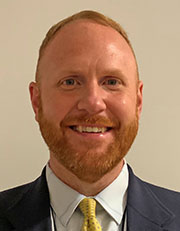
There’s the smuggling, dealing, buying and using of drugs, and then there’s a whole other end of it, quite literally.
And Genesee County officials — including from law enforcement, emergency management, health and mental health departments, Genesee-Orleans Council on Alcohol and Substance Abuse, and administration — are looking into a way that measures just what types and the amounts of drugs being consumed in the largest areas here.
To do that, they're going to test wastewater flowing through treatment plants in Le Roy and Batavia.
The cost to test at the two sites is $1,000 per month per site, and Public Health Director Paul Pettit said it's a worthy investment to collect the data on a weekly basis.
“And essentially, this is a little different than the wastewater analysis we're doing in-house. This is for chemicals. So this is looking at fentanyl, methamphetamines, cocaine, nicotine, they're also in the process of adding xylazine into the analysis that they could do. So when you look at the different types of drugs out there, it's kind of an expansive list that they're able to track and monitor on a weekly basis, we'd be able to see the different trends,” Pettit said during the county’s Human Services meeting Monday. “So, you know, again, in the wastewater, if there's an increase, that would show that we'd be able to track and see what's going on within the communities that we're looking at, and be able to use that information within the health department, within different agencies that are addressing these issues in our community.”
The committee had tabled a prior vote on the $1,000 bid from Biobot Analytics Inc. until legislators had more details about the wastewater analysis program and what data it would provide to help decrease drug use. The money would come from opioid settlement funds (See related story) that were awarded to the county. The Human Services and Public Safety committees each delved into ways the funding could be used to evaluate municipal wastewater plants, Pettit said.
Legislative Chairwoman Shelley Stein asked if there’s a plan to expand this program into other areas.
In a word, yes.
“So we looked at our two larger population centers as the way of that focus and start to see how it goes. This type of approach is new, it's not really been used at all to track these types of things at this point. So the idea was to start with (Batavia and Le Roy) to see what kind of information we're getting out of it, see how valuable it is, and then decide from there about extending it further, and expanding into some of our other municipal wastewater plants,” he said. “What else do we have here, Darien, Elba? We could also do Attica too because it's right on the border. So I think it could be another four potentially.”
Xylazine, typically used as a horse tranquilizer, is the latest drug out there, known to be in Philadelphia, with the threat of moving closer to New York and Genesee County, he said. Drug dealers cut that into drugs as is done with fentanyl, but it reacts differently, “so Narcan doesn’t touch it,” he said.
“So even if you were overdosing and having issues, Narcan would work with the opioid itself, the fentanyl, but it would not touch the xylazine,” he said. “And then maybe we have a fatality; unfortunately, that may result. This is a passive way where we can monitor, obviously through wastewater, because we don't see really the true scope of what's going on when we just look at overdoses per se. Unfortunately, this is the amount of drugs we're seeing in the system at any given time, but then you start seeing spikes, we can use that for public information.”
The $1,000 a month times two sites for up to three years with this first contract is “a lot of resources,” Legislator Marianne Clattenburg said. Especially when it’s “to look for a problem we know is already here.” Her central question has been more focused on students than on wastewater.
“When will we see education back in schools?” she said. “For a while, I think it used to be much more rigorous.”
Pettit agreed and said there should be more education on the topic. Part of the Opioid Task Force’s job has been to have school representation at its meetings, he said.
The Batavian asked Pettit after the meeting if a one-year trial would be long enough to capture trends, given variables such as holidays, weekends, and changing seasons. He agreed that certain factors can play a role in changing data and that the contract is for three years, which should be helpful to collect at least enough data to begin to spot trends and see if it’s a worthwhile effort. However, if the program leaders believe it’s not leading anywhere, they have options.
“We’ve got to start collecting some data, and they start to build what that looks like. And then, once we get enough, we can start seeing the trends. So we'll establish a baseline,” he said. “We can stop at any point within the three-year period.”
If xylazine begins to show up in the county’s wastewater, health department officials can issue public notices to alert people that the drug is here and to be cautious, he said.
The committee agreed to pass the resolution on for the full Legislature’s vote for Biobot Analytics Inc. to provide wastewater analysis for the city of Batavia and the village of Le Roy on a weekly basis at the fee of $1,000 per month.
Photo of Paul Pettit.
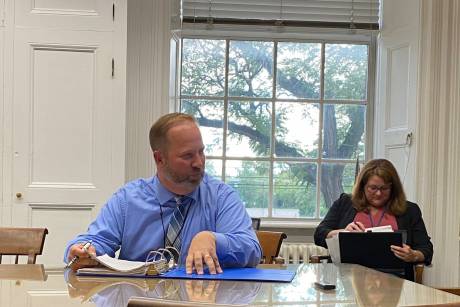
When former Genesee County Attorney Kevin Earl spoke about the county’s lawsuit against some powerful pharmaceutical companies, he said it could be several years before the matter was settled.
That was in 2017. A case about the opioid addiction crisis — so expansive in size and scope that it involved several counties throughout New York State as plaintiffs — against defendants McKesson Corporation, Cardinal Health, Amerisource Bergen, Janssen Pharmaceuticals and Allergan.
The county retained Napoli Shkolnik PLLC to obtain compensation for the money that the county had spent combatting the opioid crisis. Opioids have become such an issue that law firms, including Napoli Shkolnik, specialize in the topic.
The county argued that its social services department had borne the brunt of opioid and addiction-related costs. These professionals must “spend a great deal of time and effort on trying to, first of all, rehabilitate parents because of the drug problem and then terminating parental rights when it becomes necessary,” Earl had said at the time. They alleged that opioid manufacturers deceptively marketed their products and created thousands of addicts in the process.
Earl predicted that the case was going to be “a long process,” and he was right. The case was settled five years later. Genesee County received its first payment late last year, County Manager Matt Landers said. The defendants are paying the state, which in turn is forwarding payments to the counties involved in the lawsuit, he said.
How much has the county received, and what do you intend to do with it? Is the money designated for a specific purpose?
“The county has approximately $370,000 in the bank today,” he said. “A portion of the funding is restricted, and a portion is unrestricted. Genesee County intends to use all of the money towards combatting the effects of opioids in the community and education/prevention measures.”
Landers is part of an opioid task force that meets quarterly. The task force involves county law enforcement, the mental and public health departments, GCASA, Emergency Management and administration.
Updates are provided to the county Legislature, which will be voting on a resolution to contract with a lab to analyze wastewater for various types and volumes of drugs in the system. A portion of the opioid settlement money will be used for that purpose — $1,000 a month for each of two sites. (See related story.)
Public Health Director Paul Pettit said that once the Legislature approves the contract, the lab will begin its work. He expects that to happen by May 1, he said.
The analysis is on a yearly basis, and the contract is for up to three years.
“The hope is to continue on for a number of years to measure the impacts that different initiatives are having in the community,” Landers said.”
File Photo of County Manager Matt Landers by Joanne Beck.
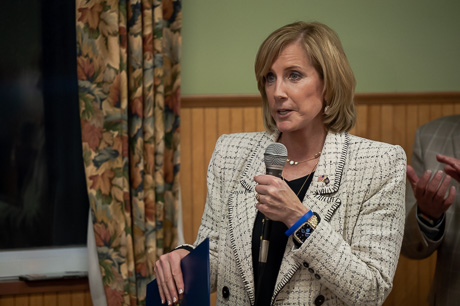
Given a chance to explain why she thinks Donald Trump didn't commit any crimes in his alleged payment of hush money to a porn star, Rep. Claudia Tenney passed.
Instead, a spokeswoman for Tenney reiterated the congresswoman's attack on Manhattan District Attorney Alvin Bragg.
In a press release on Friday, Tenney called Bragg "Soros-backed" -- a controversial phrase that the Anti-Defamation League has characterized as antisemitic because it casts Soros, who is Jewish, as the leader of a conspiracy and a "puppet master."
Meg Deenen, a spokeswoman for Tenney, defended the use of the term based on a $1 million contribution George Soros made to Color of Change PAC, which backed Bragg in his Democratic primary campaign for District Attorney.
News broke Friday that the former president was indicted by a New York Grand Jury for allegedly paying $130,000 in hush money to Stormy Daniels, a former adult film actress whom Trump was reportedly involved with, though Trump has denied an affair. If the payment was made and was intended to help his 2016 presidential campaign, it violated campaign finance laws.
Trump's former attorney, Michael Cohen, has already been convicted and served a prison term on similar charges, and may be a witness against Trump in the case. Cohen has claimed he was working at Trump's direction in making the alleged payment.
A Grand Jury was investigating similar charges against Trump when Bragg took office in 2022. Bragg was reportedly dissatisfied with the strength of the case at that time, and two prosecutors in his office resigned over the disagreement. Bragg reopened the investigation after members of the Trump organization were convicted on tax fraud charges.
Trump's attorneys have reportedly confirmed the pending indictment against the former president, but it has not yet been unsealed, and we don't know what specific charges it might contain.
Tenney called the indictment a "witch hunt" and "a political persecution with purely malicious intent" in a press release, but offered no facts or evidence to support her claim.
She also attacked Bragg for allowing "violent criminals to walk the streets, downgrading 52 felony charges to misdemeanors."
Bragg is one of a cadre of District Attorneys in large cities across the nation pushing progressive reforms in criminal prosecutions. Critics of such policies -- including Tenney -- say crime is increasing in these cities. Progressive policies likely cost Chesa Boudin, the district attorney in San Francisco, one of the most progressive cities in the U.S., his job. He became hugely unpopular, characterized as "soft on crime," and was ousted in a recall election.
Bragg made headlines when he took office with his "Day One" memo in which he said the prosecution of low-level offenders, including low-level felonies, was clogging an already overburdened court system. He asked prosecutors to concentrate on violent crimes.
According to at least one poll, Bragg's policies are not going over well with New York City residents. The conservative editorial board of the New York Post has attacked Bragg's policies.
But when asked why Tenney believes Bragg's policies, which she attacked, are related to the potential prosecution of Trump, Tenney did not respond.
The Batavian contacted Tenney's staff after receiving the press release Friday because of the "Soros-backed" phrase in its first sentence. The tendency in some circles to paint Soros as the source of evil is widely considered to be antisemitic.
Even if no antisemitic insinuation is intended, casting a Jewish individual as a puppet master who manipulates national events for malign purposes has the effect of mainstreaming antisemitic tropes and giving support, however unwitting, to bona fide antisemites and extremists who disseminate these ideas knowingly and with malice.
The Batavian asked Tenney's office, "Is it Rep. Tenney's intention to perpetuate an antisemitic stereotype by saying Alvin Bragg is 'Soros-backed'?' and if she thought Bragg was prosecuting Trump in order to do the bidding of Soros?
Deneen responded, "It is ludicrous to suggest that stating who George Soros’s donations have supported and criticizing his pro-crime policies is anti-Semitic. The accusation is completely preposterous and, frankly, wildly inappropriate."
The Batavian asked multiple questions in its email, not just about the "Soros-backed" statement, but for the evidence Tenney believes exists that would exonerate Trump. What evidence does she have in her possession, that gives her confidence the Grand Jury is less than impartial and acting with Bragg to pursue a political prosecution? We then followed up with similar questions, after receiving the response above, and noted that to whatever degree Soros might be involved with Bragg, it seems irrelevant to the prosecution of Trump unless Tenney has evidence or facts to back up the assertion.
Neither Tenney nor Deneen responded to the additional questions.
The "Soros-backed" trope appears to be a GOP talking point in defense of Trump, and Soros responded to it, stating, "As for Alvin Bragg, as a matter of fact, I did not contribute to his campaign, and I don’t know him."
Writing for the Spectator, Oliver Wiseman said the GOP may be side-stepping the charges against Trump with the phrase "Soros-backed," but it isn't completely without relevance.
"There’s nothing far-fetched or conspiratorial about calling Bragg Soros-backed. Soros gave $1 million to the Color of Change PAC, which backed Bragg’s election. Soros’s son, Jonathan, gave directly to Bragg, as did his wife. And Soros has been a vocal supporter of progressive prosecutors like Bragg around the country. It may be a deflection for Republicans to talk about Bragg’s ties to Soros, but it doesn’t mean they don’t exist."
Here is the full press release from Friday:
Congresswoman Claudia Tenney (NY-24) today released the following statement in response to the indictment of former President Donald Trump:
"Soros-backed District Attorney Alvin Bragg’s witch-hunt targeting President Donald Trump is a political persecution with purely malicious intent,” said Congresswoman Tenney. “Bragg has repeatedly allowed violent criminals to walk the streets, downgrading 52% of felony charges to misdemeanors. Yet now he has decided to spend precious taxpayer dollars and resources on this outrageous case against Donald Trump, and only after he announced he was running for president. Every American should be concerned about this gross abuse of power and the politicized two-tiered system of justice we now have in America. I once again call on Governor Kathy Hochul to act. Uphold the rule of law and remove Alvin Bragg from office for, among other things, his failure to enforce the law and his blatant politicization of the criminal justice system. ”
Photo: File photo of Claudia Tenney by Howard Owens.
A pedestrian has been struck by a vehicle in the area of 370 West Main St,, Batavia.
A first responder reports the patient is conscious and alert.
City Fire and Mercy EMS dispatched.
Southbound traffic is blocked at Union and West Avenue.
Press release:
April 3-9 is National Public Health Week (NPHW). The goal of National Public Health Week is to recognize the contributions of public health, and the workforce and highlight issues that can improve the health and well-being of our communities.
The primary purpose of public health is prevention, protection, and improving the health of the entire population. “Many of the leading causes of death for individuals in our community result from chronic conditions, which are among the most common, costly, and preventable of all health challenges,” stated Paul Pettit, Public Health Director for Genesee and Orleans County Health Departments (GO Health).
GO Health supports and implements programming and interventions that address emerging health issues and topics including, but not limited to, chronic diseases, overdose deaths, suicides, communicable diseases, substance use disorders, adverse childhood experiences, trauma, maternal and child health, a safe environment, and social determinants of health. “At GO Health, we have an enthusiastic staff that aims to protect and improve the health of residents in our community,” stated Pettit. “We thank them for their service and dedication.”
However, we know that we cannot make a difference without building effective working relationships with partners in healthcare and other sectors. As Chief Health Strategists, GO Health collaborates with partners outside of the health sector, including city planners, transportation officials, educational officials, legislators, and private businesses, because we recognize that other sectors can influence health factors and outcomes. “We would like to take this time during National Public Health Week to thank our partners,” stated Pettit. “We could not make the impact and improve the lives of our residents without the tireless work and effort our partners and volunteers put into our communities.”
This NPHW, GO Health, encourages residents of Genesee and Orleans Counties to help celebrate National Public Health Week by participating in activities to help improve their health and make our community healthier, stronger, and safer. Some suggestions include:
- Eat less processed foods and drinks.
- Quit smoking and vaping. Call the New York State (NYS) Quitline at 1-866-697-8487 for free patches and more.
- Be active. Take a walk or bike ride along the canal, on a trail, or in a village.
- Make sure you are up-to-date on routine screenings for colorectal (colon) cancer, breast cancer, and cervical cancer.
- Make sure you and your children are up-to-date on routine immunizations.
- Stay away from wildlife, including injured animals and pets that aren’t yours, to reduce your risk of rabies. Love your own, leave the rest alone.
- Keep your pets up-to-date on their rabies vaccination.
- Learn how to administer Naloxone (Narcan).
- Volunteer at a local service organization that contributes to the health and well-being of our community.
- Read to your children, every day.
- The only way to find out if your children have been exposed to lead is through a blood test. Get your children tested for lead at ages 1 and 2.
- Make sure your children see their doctors for routine well-child visits to monitor their growth and developmental milestones.
- Be prepared and make a family emergency plan. Practice your plan with your family/household and make sure your emergency kit is stocked with essential items. For more information, visit ready.gov/plan.
- Practice mindfulness or try yoga to help relieve stress.
For more information on GO Health Programs, visit www.GOHealthNY.org.
Press release:
Each year in April, the Office for Victims of Crime helps lead communities throughout the country in its annual observances of National Crime Victims’ Rights Week (NCVRW), which will be observed April 23- 29, 2023. This year’s theme is “Survivor Voices: Elevate. Engage. Effect Change.”.
In Genesee County, the annual observance will include an event open to the public on April 24, 2023 from 8:30 am to 12:30 pm at Genesee Community College. It will feature a morning full of presentations and speakers on various topics, including those surrounding crime victims' rights. It will be held inside the Conable Technology Building (Room T102) at Genesee Community College, 1 College Road, Batavia, NY.
The cost is $10 per person or $5 per student or senior (age 62+). Register by April 14, 2023 by calling Sharon Burns at 585-344-2550 ext 3929 or emailing sharon.burns@co.genesee.ny.us for registration details.
Speakers:
Opening Remarks
- Joseph Graff: Chief Deputy, Genesee County Sheriff’s OfficeKeynote Speaker
- Janine Latus: an award-winning journalist, author and advocate, best known for her memoir, If I Am Missing or Dead: a sister’s story of love, murder and liberation, but Latus has had a long career of satisfying curiosity – her own and her readers’. Her work has appeared in O, the Oprah magazine, More, Woman’s Day, Family Circle, Parents, All You, American Baby and the inflight magazines for US Air, American Airlines, Continental and TWA.
Elder Abuse 101
- Stephanie Good: Helpline Coordinator for the Elder Abuse Helpline for Concerned Persons, Lifespan of Greater Rochester
- Sue Talsania: Elder Abuse Prevention Program (EAPP), Upstate Elder Abuse Center at Lifespan Bullying in Schools
- Officer Miah Stevens: School Resource Officer, City of Batavia Police Department
- Deputy Jordan Alejandro: School Resource Officer, Genesee County Sheriff’s Office
- Detective Eric Hill: Detective, City of Batavia Police Department
Closing Remarks
- Robert Zickl: Assistant District Attorney, Genesee County District Attorney’s Office
Thank you to our sponsors: Genesee Community College; Grace Baptist Church; GCC Criminal Justice Club and Student Activities; Batavia City Police Benevolent Association, Inc.; Genesee County Interagency Council; GCASA; Hotel at Batavia Downs; YWCA of Genesee County, Inc.; Cakes by Lili; Genesee County Deputy Sheriff’s Association; Genesee County Sheriff's Employees Association; My-T Acres, Inc.; Our Lady of Batavia Knights of Columbus; Polish Falcons of America Nest 493; Triple-O Mechanical, Inc.

Press release:
The Genesee County Chamber of Commerce is pleased to announce that it has updated and expanded the Barn Quilt Trail of Le Roy, in cooperation with Le Roy Historian Lynne Belluscio and the Le Roy Historical Society, by launching a new website and new self-guided trail brochure.
The original 2012 Barn Quilt Trail began as a bicentennial project for the Town of Le Roy, with the first being painted in 2011 at the annual Oatka Festival. In the following 10 months, the trail surpassed its goal of 25, with over 70 barn quilts being painted and erected.
Today, the trail features a collection of over 100 hand-painted barn quilts along four driving tours in and around LeR oy. Explore the scenic countryside while spotting each unique barn quilt that’s displayed on an array of barns, garages, homes and other outbuildings. Each quilt pattern has a story to tell, and these stories, along with full size images, can be found on the new LeRoyBarnQuilt.org website.
Barn Quilts are known to drive heritage tourism for rural communities as visitors search out authentic experiences that represent the stories and people, past and present, of the area. For Genesee County, the barn quilts have come to represent the pride shared by the people of LeRoy, a town with a rich agricultural heritage, deep appreciation of its history and immense pride in family heritage.
The Barn Quilt Trail expansion is supported through the Tourism Matching Funds program, administered by Empire State Development and I LOVE NY, New York State's Division of Tourism.
The Chamber invites everyone to explore the trail and discover the beauty and history of the area. The brochure can be requested online at LeRoyBarnQuilt.org or picked up at the Chamber’s Visitor Center at 8276 Park Road in Batavia. This, and other local brochures, can be found in our vestibule, which is open 24 hours a day, seven days a week. It will also be available in LeRoy this spring at the Town Hall, Village Hall, McDonald’s, The D&R Depot Restaurant, JELL-O Gallery Museum and the Woodward Memorial Library. Watch for special Barn Quilts programming at the Woodward Memorial Library this spring.
Press release:
Congresswoman Claudia Tenney (NY-24), a member of the House Committee on Science, Space, and Technology, took part in a committee markup of seven bills, including H.R. 1734, the Testing, Rapid Analysis, and Narcotic Quality (TRANQ) Research Act. This bipartisan piece of legislation, which Rep. Tenney cosponsored, was led by Rep. Mike Collins (R-GA), Rep. Yadira Caraveo (D-CO), Rep. Frank Lucas (R-OK), and Rep. Zoe Lofgren (D-CA).
This legislation works to combat the spread of synthetic opioids across our country. The bill directs the National Institute of Standards and Technology (NIST) to expand its research and focus on the science needed to understand and cease the spread of synthetic opioids. The usage of xylazine, also known as “Tranq” or the “Zombie Drug,” has skyrocketed. Nationwide, xylazine-related deaths have increased by 1,000% in some states since 2020. Xylazine’s presence is growing across the state, including in Western and Central New York. This drug, often laced in fentanyl, is immune to standard opioid overdose treatments and has horrifying side effects, including causing large wounds that won’t heal.
The Committee also included an amendment offered by Congresswoman Tenney to require the Director of NIST to report on their implementation of this critical legislation. Further, the amendment allows the Director of NIST to make legislative recommendations to improve NIST’s ability to implement the TRANQ Research Act.
“Since 2020, deaths from the terrible ‘zombie drug’ xylazine have skyrocketed nationwide, including in New York State,” said Congresswoman Tenney. “Our communities have been devastated by the opioid crisis, and the emergence of this deadly drug has only worsened the crisis. It is essential that we combat the opioid epidemic. It was my privilege to cosponsor the TRANQ Research Act, which will help us target this dangerous zombie drug and work to save thousands of lives. I am also honored to have my amendment included to make sure Congress can continue to monitor the implementation of this act.”
Additional original cosponsors include Rep. Rick Crawford (R-AR), Rep. Valerie Foushee (D-NC), Rep. Jay Obernolte (R-CA), Rep. Jennifer McClellan (D-VA), Rep. Tom Kean (R-NJ), Rep. Deborah Ross (D-NC), Rep. Mike Garcia (R-CA), Rep. Kevin Mullin (D-CA), Rep. Eric Sorensen (D-IL), Rep. Brandon Williams (R-NY), Rep. David Trone (D-MD), Rep. Randy Weber (R-TX), Rep. Brian Babin (R-TX), and Rep. Dale Strong (R-AL).

Click here for more information; 0 Galloway Road in the Town of Batavia.
A shed fire with smoke and flames showing is reported at 10950 Bowen Road, Alexander.
Alexander Fire, Darien Fire, and Attica Fire dispatched.

In 2018, Le Roy started phasing out the traditional ranking of top students based on GPA, instituting instead a system that would also take into account challenging coursework.
A senior could no longer skate by on easy electives or study hall to preserve a high GPA. In the new system, students would need to acquire points in Advance Placement classes, for example, to achieve Summa Cum Laude.
High School Principal David Russell, who was hired after the 2018 revisions, introduced modifications to the Laude System to the Board of Education at its last meeting that would further encourage students to aim for high achievement instead of competing with classmates.
"We want to push students to make sure they're pushing themselves," Russell said.
The proposed revisions would be based on the total number of credits a student takes and a cumulative GPA. Each course would be valued the same as the number of credits the course is worth on a transcript. Students taking AP courses and CTE courses that have college credit would continue to receive an additional five points added to their average for that course.
The maximum possible score would be 36 total credits with a 100 GPA. To achieve Summa Cum Laude, a student would need at least 32 credits and a 95 GPA. Magna Cum Laude would be 30 credits and a 90 GPA. Cum Laude would be 28 total credits and an 85 GPA.
Cum Laude is Latin for "with distinction." Magna Cum Laude means "with great distinction," and Summa Cum Laude means "with highest distinction."
The Class of 2023 will be the last class to graduate under the Top 10 system. The classes of 2024, 2025 and 2026 are under the Laude system but will be eligible to move up to a higher Laude if they qualify for a higher Laude under the proposed revisions. If the revisions are approved, the Class of 2027 would be the first class to graduate under this new Laude system.
The goal of the Laude system is to give every student who makes the effort, regardless of life or career goals -- whether in a STEM field, the arts, or athletics -- to graduate with a Laude distinction. Every pathway, Russell explained, gives students who work hard to achieve distinction for the effort.
"One of our fundamental pillars as a public school is to create opportunities for whatever pathway students take on, we're helping prepare them for whatever future they want to go into," Russell said.
The Laude system, Superintendent Merritt Holly noted, is the antidote for "senioritis."
"When we look at the class rank, what we're in right now, that one ends at the end of the first semester," Holly said. "So in January, the Top 10 is really set and done at that point. One of the things you'll hear from the committee and our teachers always is 'senioritis' sets in. As Dave mentioned, what I like about this is it can run all the way up to the end of the school year."
The class rank system does require some hand calculation, Holly said, which is why the class rank is set after the first system. And Russell noted that the class rank is made public, which encourages students to compete against each other.
In the Laude system, only the student, his or her parents, and school counselors will know if a student is headed toward a Laude tier. There is no competition.
"That (competition) can really be unhealthy at times," Russell said.
The rank system also produces the graduation speakers -- the valedictorian and salutatorian. In the new system, students can nominate themselves or others to speak at graduation. School administrators will review those nominations to ensure those truly worthy of speaking will be given the opportunity to be selected as class speakers in a vote of their peers.
The Board of Education will vote at its April 11 meeting on whether or not to accept the proposed revisions.
Photo: Principal David Russell. Photo by Howard Owens.
Copyright © 2008-2022 The Batavian. All Rights Reserved. Privacy Policy | Terms of Service